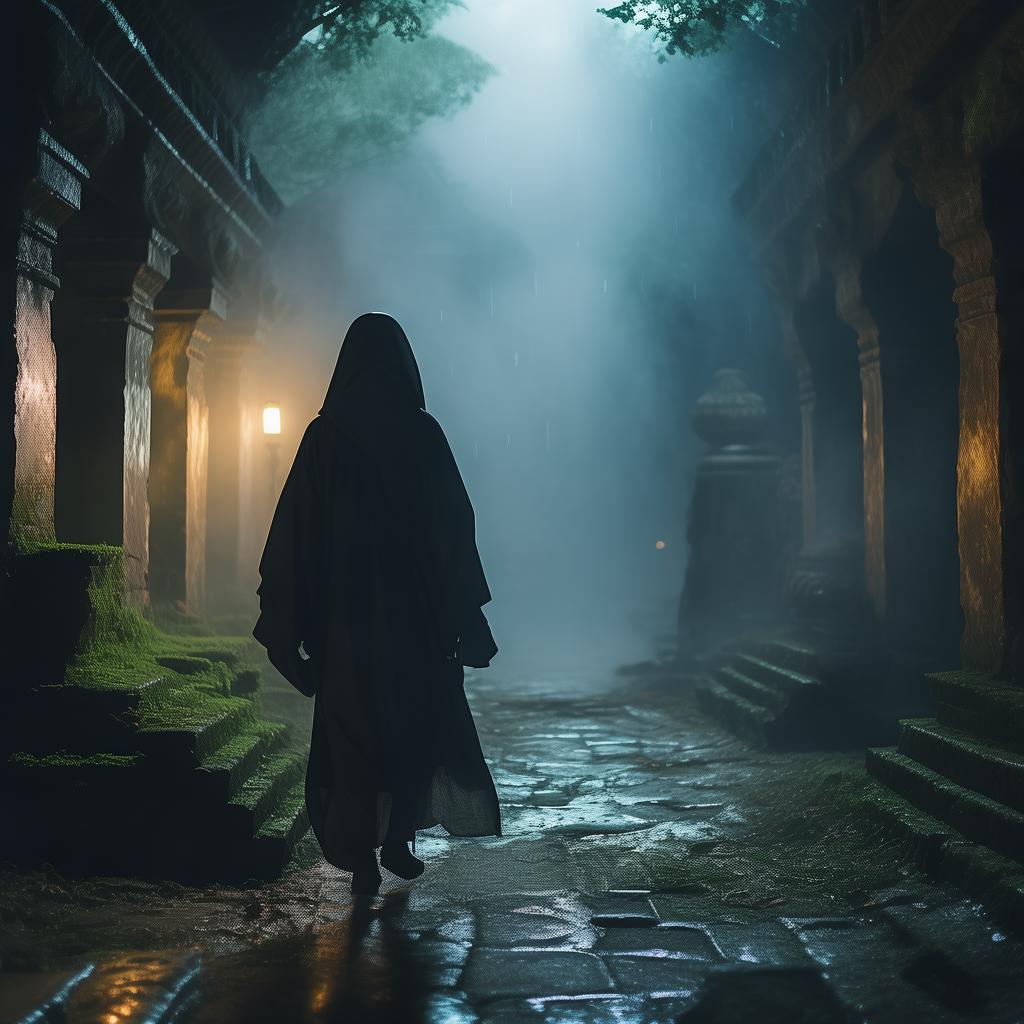The Shadowed Symphony: A Phantom's Lament
The grand concert hall, known as the Cardo, stood at the heart of an ancient city, its marble floors and ornate balconies echoing with the whispers of bygone eras. Its name, The Cardo, was derived from the Latin word for "main street," a testament to its historical significance. But to the locals, it was far more than a mere architectural marvel; it was a place of legends, a haunted sanctuary where the past and the present intertwined in eerie, unspoken ways.
The night was dark, and the moon hung low in the sky, casting long shadows across the grandiose structure. A group of musicians, seasoned veterans of the local symphony, gathered in the dimly lit hall, their instruments gleaming with anticipation. The hall was silent, save for the occasional creak of the wooden doors as they closed behind them.
Among the musicians was an enigmatic figure, a man of medium height with piercing blue eyes and a gentle smile that seemed to belong to another world. His name was Aria, and he was known among the orchestra not as a player but as the conductor. His presence was always a mystery, as he never spoke and seemed to communicate with the musicians through subtle hand gestures and expressions.

As the musicians took their places, Aria stepped forward, his silhouette barely visible in the moonlight. He raised his hands, and the music began. The symphony was unlike any the orchestra had ever played, filled with haunting melodies that seemed to resonate with the very soul of the hall. The music was both beautiful and terrifying, as if it held within its notes the secrets of the past.
The audience, which had filled the hall, was captivated. They watched in awe as Aria conducted, his movements fluid and precise, yet his eyes remained locked on the void beyond the stage. It was as if he was seeing something that none of them could.
As the symphony reached its climax, the air in the hall grew thick with tension. The music became a cacophony of despair, with each note echoing the ghostly figure of a woman, her face etched with sorrow and longing. The audience felt the weight of her story, the pain of her unrequited love, and the futility of her pursuit.
Suddenly, the music stopped, and Aria collapsed to the floor, his eyes wide with shock. The audience gasped, and a hush fell over the room. In the silence, a figure emerged from the shadows, a woman with long, flowing hair and eyes that seemed to burn with a thousand emotions. She stood before Aria, her hands reaching out to him, her face contorted in an expression of profound sorrow.
The woman was the phantom of the Cardo, a spirit that had roamed the halls for centuries, her love for Aria, the man who had been her conductor, never waning. Her symphony had been her life, her eternal quest to share her love with him, even in death.
The audience watched in horror as the phantom's form began to fade, her spirit leaving the hall with a final, poignant sigh. Aria's eyes fluttered open, and he reached out to touch the air where she had been. "You... You finally came," he whispered, his voice breaking.
The audience was silent, the music having become an ethereal backdrop to the ghostly reunion. As the phantom's form disappeared entirely, Aria's eyes closed, and he, too, seemed to drift away, his spirit joining hers in an eternal embrace.
The symphony had played its final note, and the audience was left in a state of shock and awe. They had witnessed the convergence of the past and the present, the final act of a love story that had transcended time itself.
In the days that followed, whispers of the haunting symphony spread through the city. The Cardo, once a place of legend, became a place of reverence, where those who sought to understand the mysteries of the universe would gather. The story of Aria and the phantom, the symphony that had echoed through the ages, would be told and retold, a testament to the enduring power of love and the unyielding spirit of the human heart.
The Shadowed Symphony was more than just a performance; it was a ghostly ballet of love and loss, a haunting reminder that some stories are too profound to be confined to the pages of history.
✨ Original Statement ✨
All articles published on this website (including but not limited to text, images, videos, and other content) are original or authorized for reposting and are protected by relevant laws. Without the explicit written permission of this website, no individual or organization may copy, modify, repost, or use the content for commercial purposes.
If you need to quote or cooperate, please contact this site for authorization. We reserve the right to pursue legal responsibility for any unauthorized use.
Hereby declared.









